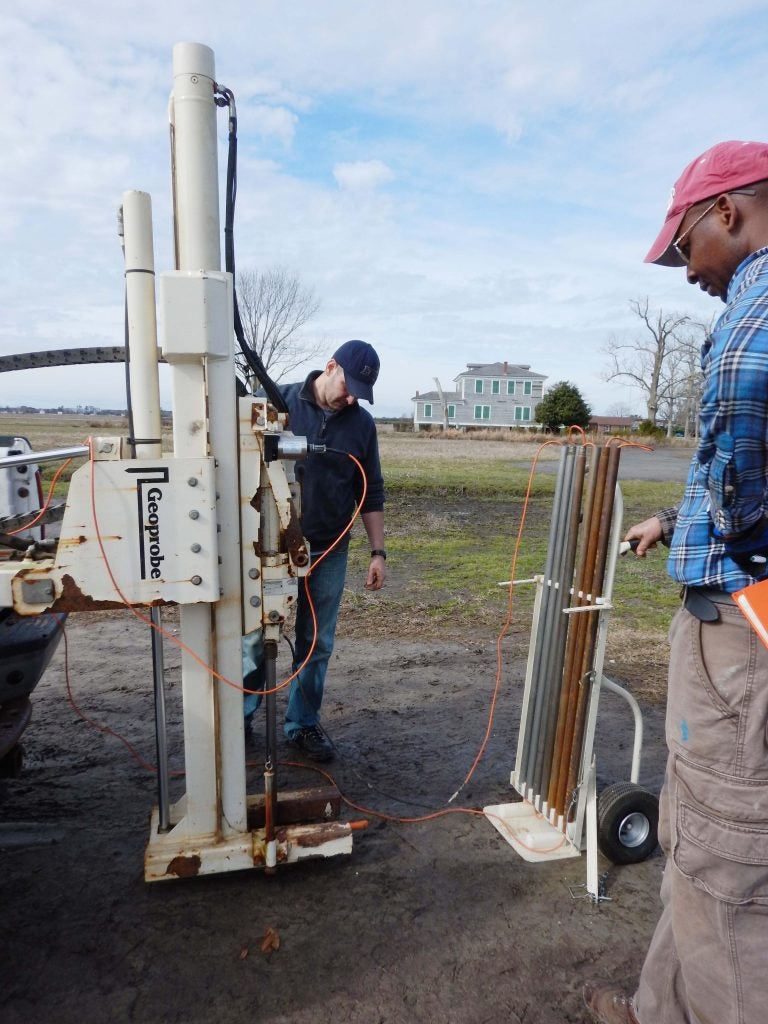Research Cluster Co-Director Featured in The Washington Post
A recent article in The Washington Post highlights research by an East Carolina University faculty member on the challenges facing farmland in eastern North Carolina.

East Carolina University associate professor Alex Manda (right) conducts a direct current electrical resistivity survey on a farm in Hyde County as part of his research on saltwater intrusion in the region. (Contributed Photo)
Alex Manda, associate professor of geological sciences and co-director of the ECU Natural Resources and the Environment Research Cluster, is studying how saltwater intrusion negatively affects soil in the region.
Saltwater intrusion happens when salt water moves into freshwater sources, introducing saltwater to areas where a high salt content could be problematic. The article notes that a mixture of “rising seas, sinking earth and extreme weather are conspiring to cause salt from the ocean to contaminate aquifers and turn formerly fertile fields barren.”
Dawson Pugh, whose Hyde County farm is featured in the Post’s article, said that flooding and salinization on his property cost him $2 million in crops over the past five years. Now, Pugh is working with Manda to find a solution.
“Our research group is collaborating with scientists and agricultural agents from North Carolina State University to address a multifaceted problem that involves crop science, geology and hydrology,” Manda said.
Manda and his team are monitoring salt levels in soil, groundwater and surface water. Saltwater intrusion has been linked to sea level rise caused by climate change, but the article states that scientists aren’t sure how the salt winds up in fields like Pugh’s. There are a few hypotheses, including wind pushing salt water from the area’s canals and ditches into farmland or storm surge events dumping salty water on agricultural land.
Manda’s work is part of a concerted effort by ECU faculty members to put their research into practice. The university has sought to increase partnerships between researchers and the community, ensuring that the work being conducted by faculty members provides real-world benefits and applications for those in the region.
“This work is important because it highlights how ECU can engage with various stakeholders to tackle projects that are of mutual benefit in eastern North Carolina,” Manda said. “For example, farmers may benefit by finding solutions to the saltwater problem, whereas ECU may benefit by offering its students opportunities to take part in authentic research experiences.”
Learn more about the Natural Resources and the Environment Research Cluster online. Manda’s research can be found on his university blog.